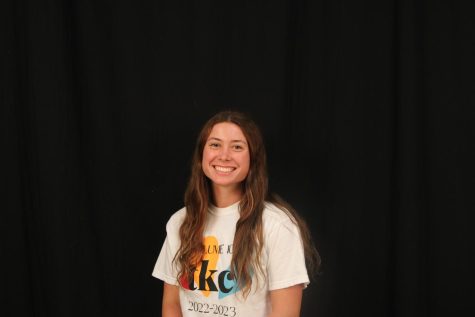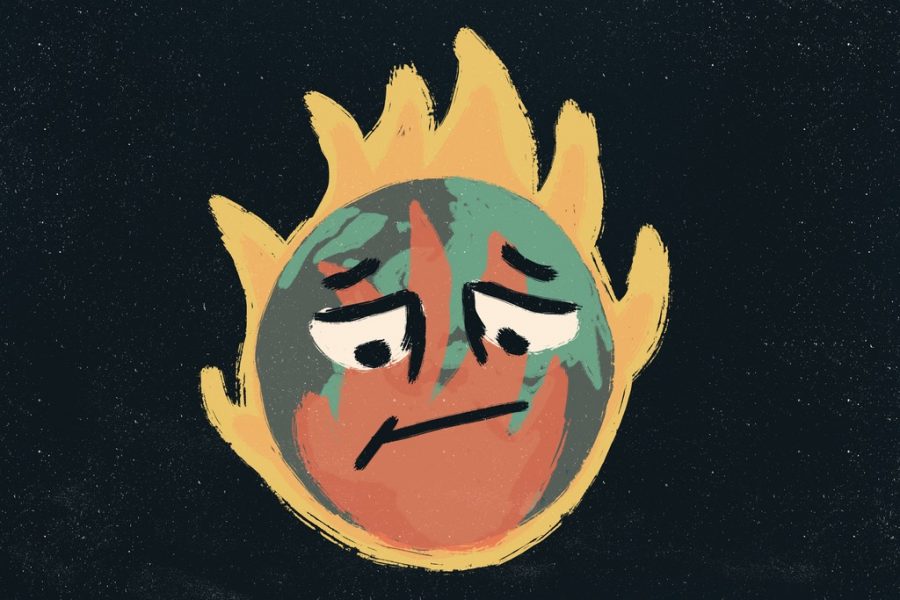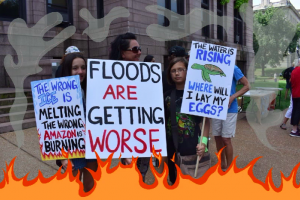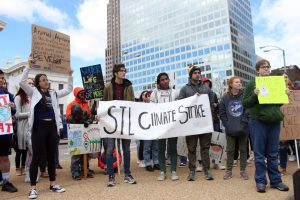Eliminate climate change
If we want an end to this catastrophe we must first accept the true danger it brings to the future.
Climate change: two words that depict a conversation nobody is ready to have. Starting thirty years ago, society has had to face this problem every day. Some have had to face the flooding of Hurricane Harvey, while others suffered a widespread drought in Oregon. Areas like the CA. 2018 Camp Fire experienced devastating wildfires, and other areas went through intense rain. The load of destruction we’ve dealt with leaves us no time to waste. We must put a stop to it now.
The clock has been ticking for some time now, and scientists and politicians are saying; we’re too late. In an article from Live Science, Are We Really Running Out of Time to Stop Climate Change?, Rafi Letzter, writes, “We can’t stop climate change — because it’s already here, and it’s already too late to reverse many of its catastrophic effects. If we’re going to stop those things from happening,” Lester says, “Society is going to have to start hitting some important deadlines fast.” If we want to turn things around down the road, we have to reach a goal of 1.5 degrees Celsius warming, that means quicker emission cuts and carbon dioxide removal. Searching the web, people can find hundreds of ways to help end climate change. There are a few solutions that are the most effective: changing your diet, flying habits and going car-free. Diego Arguedas Ortiz, a science and climate change reporter for BBC Future, in his article Ten simple ways to act on climate change, says, “So we don’t need to ask whether climate change is happening – or whether humans are causing it. Instead, we need to ask: ‘what can we do?’”
As Ortiz says in his article, one of the most effective ways to stop climate change is to go car-free. It is the number-one action an individual can do to make change, with being more polluting when compared to other methods of transportation: walking, biking or using public transportation. Ideas have come out of switching to an electric car, as it can help reduce 2.5 tonnes of carbon dioxide in industrialized countries.
Rather than only becoming car-free, we can also change our diet accordingly. The food industry (meat and dairy sector) is a heavy contributor to climate change. The world’s third largest emitter of greenhouse gases would be cattle if they were their own nation after China and the US. The meat industry contributes to climate change in three main ways: a cow’s burp, corn and soy, and fertilizers. The first involves a cow’s burp. Because of the processed food that we give them, cows burp, which releases methane, a greenhouse gas. Just like processed food, workers also feed them maize and soy which creates an inefficient process for the cows. After all the eating, the cows require one to two gallons of water during the hottest and coldest weather. Along
with fertilizers that can release greenhouse gases, huge amounts of land, needing 1.8 acres for each cow (such as clean forests), are another source of carbon emissions. By changing people’s diet, diet’s carbon footprint can be cut by more than 40%.
Lastly, we can change our flying habits which run on fossil fuels. Planes can release about 1.6 tonnes of carbon dioxide on a regular flight. To help encourage change, Scientists have started using other sorts of travel to lessen the amount of CO2 used already. Instead, they change their meetings to virtual, change their holiday vacations to local destinations or switch from planes for trains.
The time is now for people to change their ways for the betterment of their planet. Climate change is our biggest enemy right now and we have to attack it head on for any chance of winning. Change for the better. Help save our planet from climate change. Save our planet.
Your donation will support the student journalists of Kirkwood High School. Your contribution will allow us to purchase equipment and cover our annual website hosting costs.

She/Her
Hobbies and Interests: softball, pickle ball, writing, swimming and hanging out with friends
Favorite song: Baby, I Love Your Way by Big...

she/her
Favorite musical artist: The 1975
Favorite quote: “Don't bother just to be better than your contemporaries or predecessors. Try to be better...









